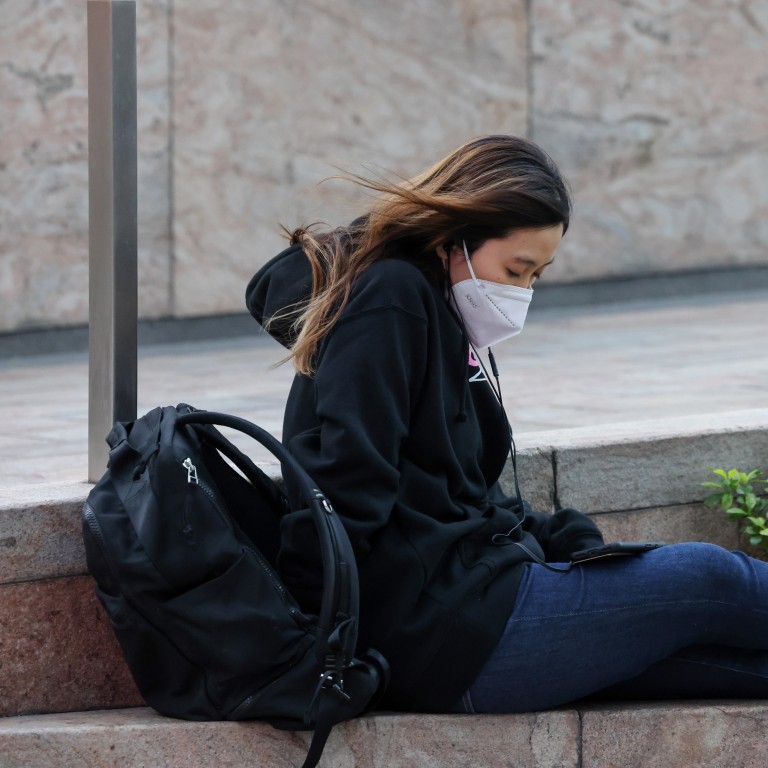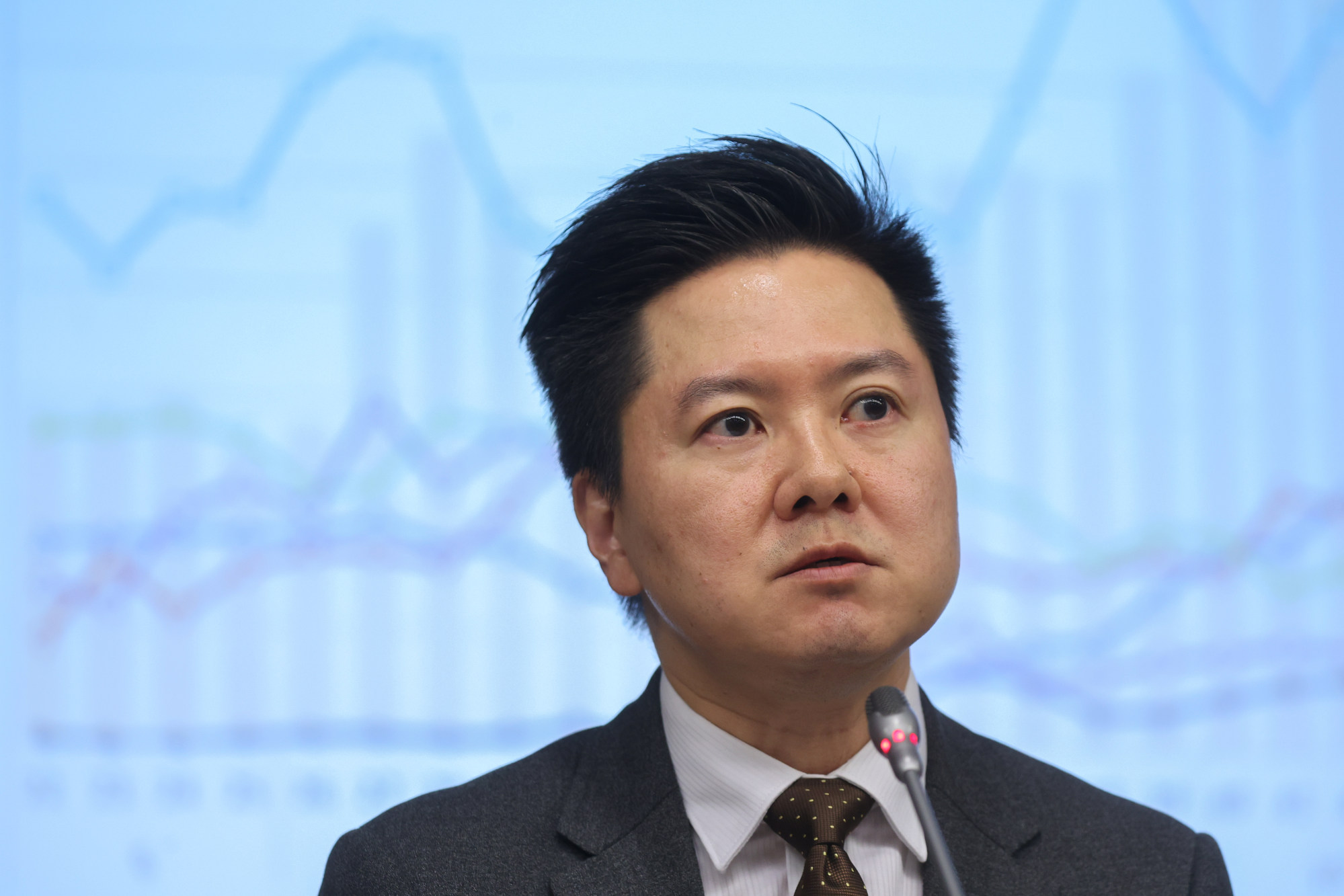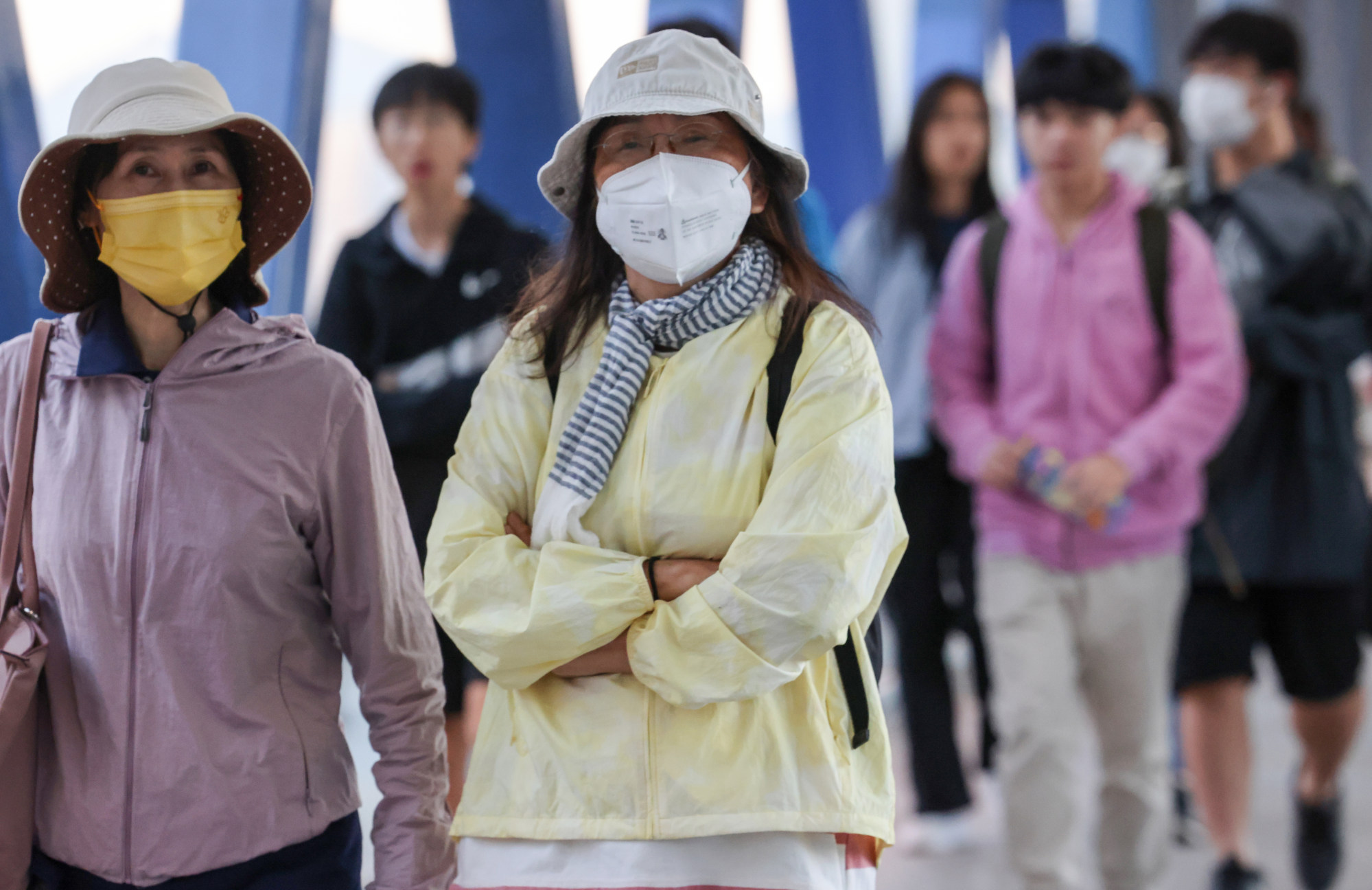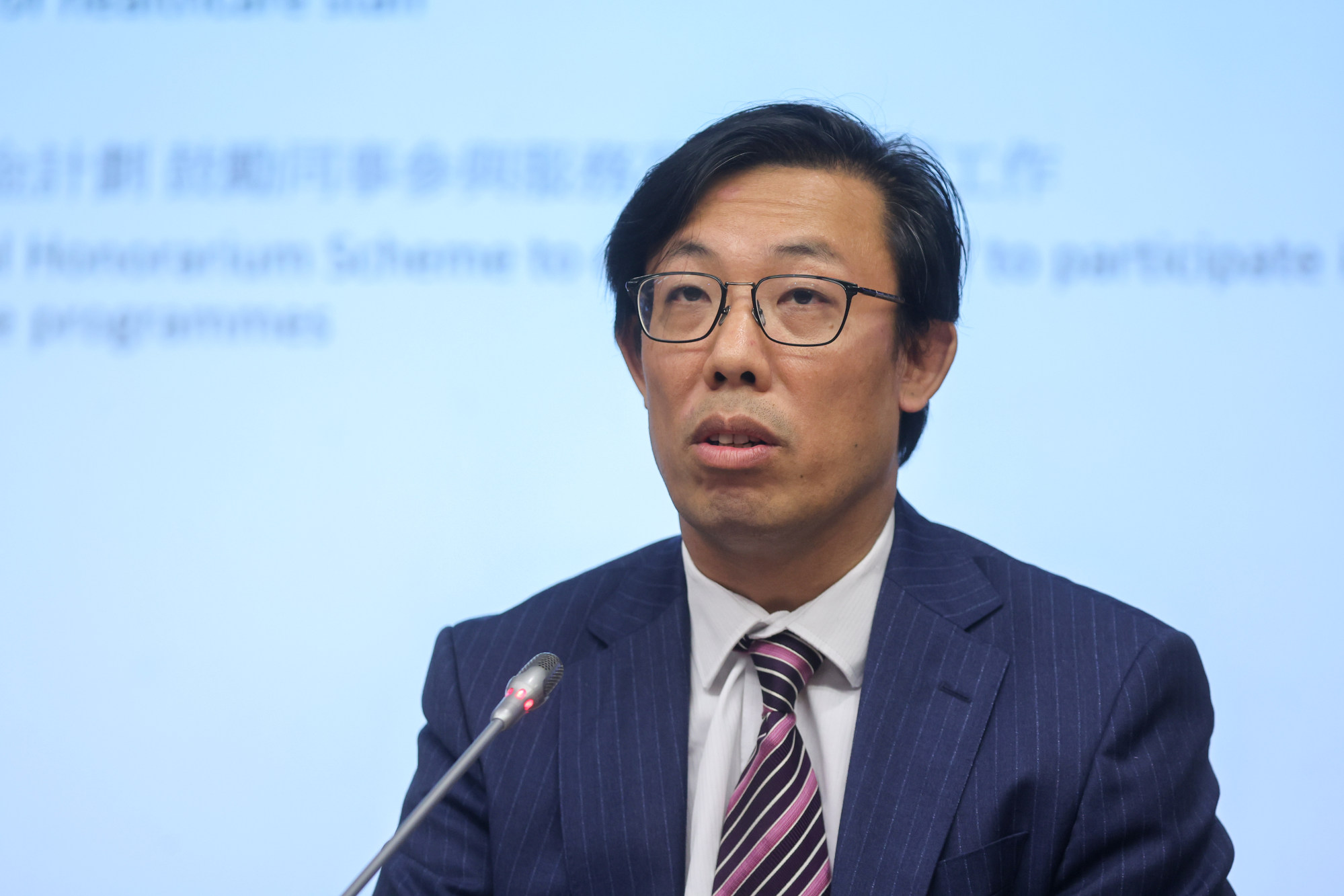
Hong Kong health authorities brace for flu season as temperatures set to drop on Saturday
- Dr Edwin Tsui expects surge in flu cases between January and April as ‘many people may travel overseas during Christmas and attend celebrations on New Year’s Eve’
- As of December 9, rhinovirus and enterovirus infections prevailed among children with 31.2 per cent, followed by adenovirus and parainfluenza with respective 23.1 and 18.1 per cent
Health authorities have warned the winter influenza season is likely to hit Hong Kong next month, urging high-risk groups to get flu jabs as soon as possible, with the temperature set to drop to 12 degrees Celsius (53.6 Fahrenheit) on Saturday.
Centre for Health Protection controller Dr Edwin Tsui Lok-kin on Friday said the winter surge in flu cases normally occurred between January and April, expecting the same to happen next year.
“As we entered December, the weather will become colder and the temperature is expected to drop next week,” he said. “As the city has returned to normality, we believe many people may travel overseas during Christmas and attend celebrations on New Year’s Eve.
“During these times, the level of activity of many respiratory tract infections may continue to rise and outbreaks may even occur.”

The Hong Kong Observatory said a cold front moving across the coast of southern China would bring the temperature down to around 12 degrees on Saturday. The first cold weather warning since the beginning of winter this year is set to be issued on Saturday morning, with a few rain patches and light winds expected.
According to the centre, 3.76 per cent of respiratory specimens collected by its laboratory between December 3 and 9 tested positive for influenza, while the admission rate in public hospitals for flu cases was 0.14 per cent during the same period.
Tsui said the city had yet to enter the winter influenza season as both figures stood at a low level. But he did not rule out the possibility of it emerging in January.
Top scientists, including Hong Kong scholar, vow to prepare for next pandemic
He also said that paediatric cases of other respiratory tract infections had been on the rise as the number of samples collected by the centre from children in the past six weeks had increased.
Rhinovirus and enterovirus were the most prevalent infections among children with 31.2 per cent as of December 9, but a downward trend has been observed. They were followed by adenovirus and parainfluenza with a respective 23.1 per cent and 18.1 per cent of all infections. Both have shown a rising trend.
For cases of mycoplasma pneumoniae, which mainland China grappled with last month, the positivity rate of the respiratory illness among children in Hong Kong remains stable at 3.5 per cent.

Tsui said previous data had shown that mycoplasma pneumoniae infections would peak every few years. The previous peaks occurred in 2019 and 2016.
“During previous peaks, 80 cases were hospitalised each week between May and September. In 2023, the trend was quite flat between January and July when we still had many social distancing measures,” he stressed.
“From August, the number of these infections increased but it was far lower than that of the previous peaks.”
A seasonal pattern in Covid-19 infections had been noticed, Tsui said, expecting cases were likely to increase in the coming few months.
Hospital Authority chief warns of flu surge as Hong Kong enters mask-free winter
He added that after the Covid-19 pandemic had subsided, a phenomenon called “immunity gap” had been observed across the world where immunity against other viruses had dropped due to social-distancing measures. It led to outbreaks of respiratory illnesses in different countries.
“If you have any respiratory symptoms, you should not go to work or school, avoid crowded places and seek medical advice as soon as possible,” he said. “High-risk groups such as the elderly or those who are immunocompromised should wear a mask in crowded places.”

The centre also urged high-risk groups to promptly receive influenza and Covid-19 vaccines to protect themselves against serious infections.
Only 15.4 per cent of children aged between six months and two years had been vaccinated with the flu shots, Tsui said, calling it “unsatisfactory”.
“In the past three years of Covid-19 pandemic, children rarely had contact with other people and common respiratory infectious agents.
“In the coming winter, the activity level of these infectious agents may be very high. There may be great infection risks for children in this age group.”
Call for flu shots as 37 serious cases in Hong Kong in 1 week lead to 21 deaths
The Hospital Authority said the occupancy rate for paediatric wards had reached 101 per cent as of Friday.
Authority chief manager Dr Larry Lee Lap-yip said temporary beds would be set up when demand spiked and other specialties had reserved wards and beds for paediatric patients if necessary.
Patients would also be transferred to private hospitals in partnership with the authority when needed, he added.
Additional reporting by Peter Guo

